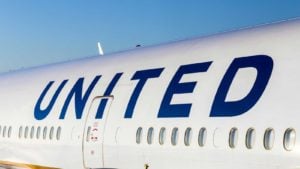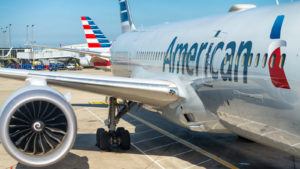3 Airline Stocks Facing Turbulence Due to Boeing’s Very Bad Year
This week, Boeing (NYSE:BA) CEO Dave Calhoun has announced that he is stepping down at the end of this year. Other senior executives are leaving the company immediately, including Stan Deal, president of the company’s commercial airplane unit. Boeing board chair Larry Kellner won’t stand for reelection. The leadership shake-up is the latest upheaval at the troubled commercial aircraft manufacturer, and the turmoil at Boeing is directly impacting other airline stocks.
Boeing has been dealing with a crisis of confidence since a door plug on one of its aircraft blew off mid-flight in January. Since then, Boeing has come under intense scrutiny from the Federal Aviation Administration (FAA), Congress and Wall Street. Audits and inspections have revealed lax safety protocols and other troubling findings that could put air passengers at risk. Consequently, BA stock has fallen 25% this year, putting its five-year decline at 50%.
While things have been bad at Boeing, the problems have also spilled over to the airlines that are the company’s customers. These airlines rely on Boeing’s planes to stock their fleets and keep them updated. Compounding problems for the airlines is the fact that there is only one other commercial aircraft manufacturer in the entire world, Airbus (EPA:AIR) of France. And Airbus is already struggling with a massive order backlog. Here are three airline stocks facing turbulence due to Boeing’s very bad year.
United Airlines (UAL)

United Airlines (NASDAQ:UAL) is really taking it on the chin thanks to Boeing. The carrier’s stock recently fell 5% on news reports that the FAA is increasing its oversight of the airline due to a number of safety issues. The FAA reported that it was looking to ensure that United is “effectively managing safety.” Not coincidentally, United Airlines has more Boeing aircraft in its fleet than any other U.S.-based carrier.
In releasing its latest earnings, United forecast a loss for the current first quarter because regulators grounded the Boeing 737 MAX 9 airplanes that the carrier uses. United said that it expects a loss of 35 cents to 85 cents per share due to the grounding of Boeing MAX 9 aircraft. United’s management team said they’ve been forced to cancel 11% of their scheduled flights since the Boeing door plug incident occurred at the start of the year.
Alaska Air Group (ALK)

Alaska Air Group (NYSE:ALK) was the carrier operating the Boeing aircraft when the door plug blew off mid-flight, leaving a gaping hole next to a row of passengers and causing a viral internet sensation. To say its publicity has been bad is an understatement. ALK stock had been struggling before the incident happened in early January. Now, the company’s share price is trading almost 30% lower than where it was five years ago.
Like United Airlines, Alaska Air Group operates a large fleet of Boeing aircraft. In fact, its entire fleet is made up of Boeing 737 series aircraft that are now being scrutinized over safety concerns. As passengers across America switch flights to avoid Boeing aircraft, it is having a material impact on Alaska Air’s operations and earnings. If all this weren’t enough, the FBI is now investigating the January door plug incident as a crime.
American Airlines (AAL)

When one of only two commercial aircraft manufacturers in the world experiences major problems and delays, it causes headaches at American Airlines (NYSE:AAL). The largest carrier in the world, American Airlines operates a fleet of almost 1,000 aircraft, nearly all of them made by Boeing and Airbus. American needs to constantly update its fleet, removing older airplanes and replacing them with newer models.
In early March, American Airlines placed its biggest airplane order since 2011, buying 85 new jets each from Airbus and Boeing, as well as 90 aircraft from Brazil’s Embraer (NYSE:ERJ). The big order comes as American Airlines tries to capitalize on booming demand for air travel, particularly premium travel. However, American’s plans are running into headwinds due to Boeing’s very bad year.
AAL stock has risen only 7.6% in the last 12 months, underperforming the market. Over five years, the company’s share price is down 53%.
On the date of publication, Joel Baglole did not have (either directly or indirectly) any positions in the securities mentioned in this article. The opinions expressed in this article are those of the writer, subject to the InvestorPlace.com Publishing Guidelines.

